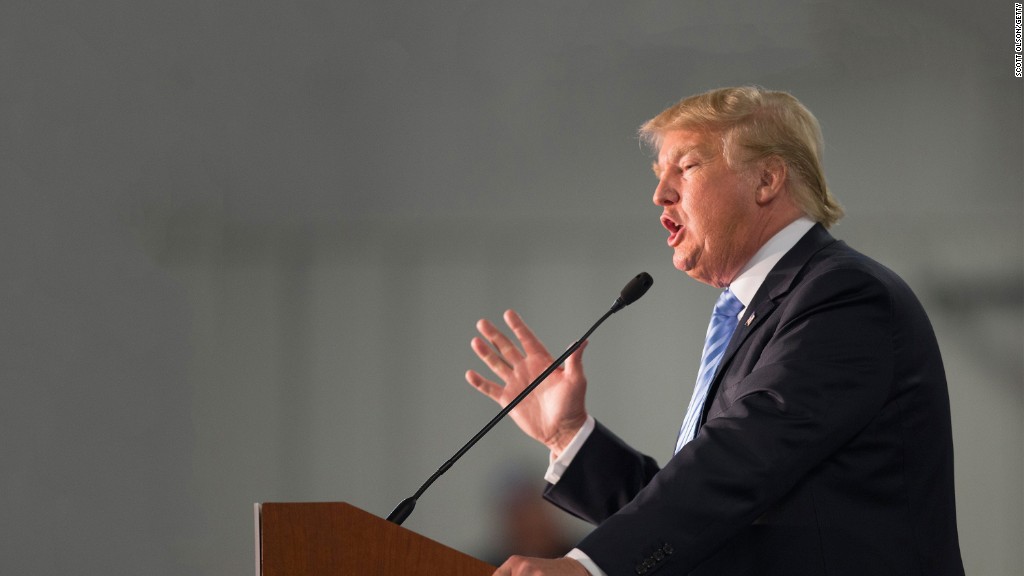
Donald Trump suggested in an interview Sunday that America's protections for the press might go too far and that the country's libel and slander laws would be better if they were changed to resemble the United Kingdom's.
The Republican presidential nominee, whose path to the White House has been made more difficult by allegations of sexual misconduct, over which he has repeatedly threatened to sue, made the comments in an interview with a CBS affiliate in Miami after he was asked if there is "too much protection allowed in the First Amendment."
"Well in England they have a system where you can actually sue if someone says something wrong," Trump said. "Our press is allowed to say whatever they want and get away with it. And I think we should go to a system where if they do something wrong -- I'm a big believer, tremendous believer of the freedom of the press, nobody believes it stronger than me -- but if they make terrible, terrible mistakes and those mistakes are made on purpose to injure people, and I'm not just talking about me, I'm talking about anybody else, then yes, I think you should have the ability to sue them."
Related: Trump's brand is 'plummeting,' biographer says
"In England you have a good chance of winning. And deals are made and apologies are made," he said. "Over here they don't have to apologize. They can say anything they want about you or me and there doesn't have to be any apology. England has a system where if they are wrong things happen."
In fact, Trump was essentially describing the legal standard that already prevails in U.S. defamation law. If a media organization publishes or broadcasts something untrue about a public figure that harms that person's reputation, and does so deliberately, they can be sued.
British law does make it easier to sue against news organizations than it is in the U.S., but not in the way that Trump described. There are several differences, but perhaps the most significant is that British law puts the onus on the defendant to prove that the statement at issue was true; in the U.S., the burden of proof is on the plaintiff.
A spokeswoman for the Trump campaign did not immediately respond to a request for comment.
Trump has said previously on the campaign that he would change America's libel laws, effectively making it easier to sue news outlets.
"We're going to open up libel laws and we're going to have people sue you like you've never got sued before," he said at a rally in February.
Related: New York Times to Trump: We won't retract
Threats of litigation have become a recurring theme of the Trump campaign.
The candidate said earlier this month that his lawyers were preparing a lawsuit against the New York Times for reporting on accusations from two women who said Trump touched them inappropriately. (The Times' general counsel informed the Trump campaign, in no uncertain terms, that it will not be retracting the story.) Trump has not yet followed through on his threat to sue, however.
Those gestures prompted an unprecedented condemnation from the Committee to Protect Journalists earlier this month.
"Donald Trump, through his words and actions as a candidate for president of the United States, has consistently betrayed First Amendment values," the CPJ said in a statement.


